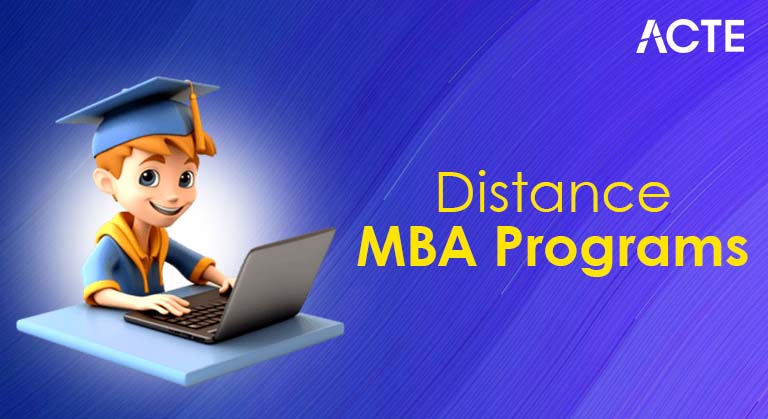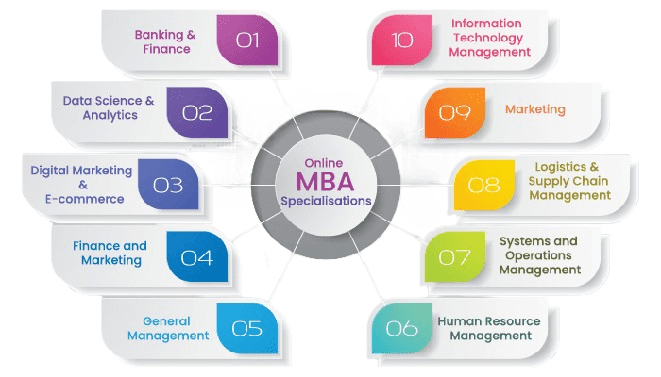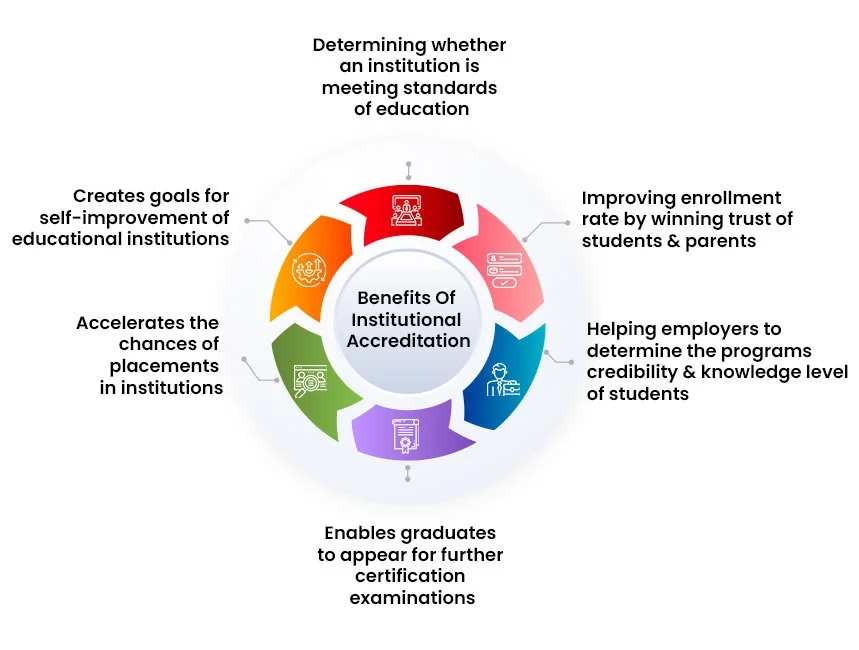
- Institutes for Distance MBA
- Eligibility Criteria for Online MBA Courses
- Duration and Curriculum of Distance MBA
- Difference Between Online and Offline Education
- Benefits of Accreditation
- Fees and Scholarships for Distance MBA
- Career Opportunities After Distance MBA
- Challenges in Distance Learning
Institutes for Distance MBA
Institutes offering Distance MBA programs provide flexible learning opportunities for working professionals, aspiring entrepreneurs, and individuals seeking to enhance their managerial skills without the need to attend traditional, full-time courses. These institutes offer a wide range of MBA specializations, such as Finance, Marketing, Human Resources, Operations, and International Business, all delivered through online classes, webinars, virtual classrooms, and interactive learning materials. Some renowned institutes include the Indira Gandhi National Open University (IGNOU), the Suresh Gyan Vihar University, the Institute of Management Technology (IMT) Ghaziabad, and the Narsee Monjee Institute of Management Studies (NMIMS), among others. Distance MBA programs typically feature a curriculum designed to offer both theoretical and practical knowledge, allowing students to balance their education with their professional lives. Moreover, these programs often include interactive sessions, industry webinars, and assignments that ensure students remain engaged while gaining practical insights into the business world. Many institutes also offer career services, networking opportunities, and support systems to help students successfully transition into leadership roles. With the growing demand for skilled managers in diverse industries, Distance MBA programs have become an increasingly popular option for those seeking to advance their careers while enjoying the flexibility of remote learning.
Eligibility Criteria for Online MBA Courses
- Educational Qualification: Candidates must have a bachelor’s degree from a recognized university or institution. The minimum percentage required may vary, but it is typically around 50-60%.
- Work Experience: Many online MBA courses require candidates to have relevant work experience, typically 2-3 years, particularly for specialized or executive programs. This helps participants relate theory to real-world business scenarios.
- Entrance Exam Scores: Some institutions may require candidates to appear for an entrance exam, such as the CAT, GMAT, or institution-specific tests. However, many online MBA programs waive this requirement for those with substantial work experience.
The eligibility criteria for online MBA courses vary depending on the institution, but generally, they are designed to ensure that candidates possess the necessary educational background and professional experience to thrive in a management program. These courses are tailored to professionals seeking to advance their careers, and the criteria reflect the skills needed for success in such a flexible and dynamic learning environment.

- English Proficiency: Proficiency in English is often required, especially for candidates who have completed their previous education in a language other than English.
- Age Limit: While some institutions may set an age limit for candidates, many online MBA courses are open to applicants from a wide age range, as long as they meet the other requirements.
- Program-Specific Requirements: Certain online MBA courses may have additional requirements based on the specialization chosen, such as specific knowledge or skills in areas like finance or marketing.
Duration and Curriculum of Distance MBA
The duration of Distance MBA programs typically ranges from 2 to 3 years, offering flexibility for working professionals to pursue their education while maintaining their careers. Some institutes may allow students to complete the program in a shorter time frame, while others may extend the duration to accommodate individual schedules. The curriculum of the Distance MBA is designed to provide a solid foundation in business management, covering key areas such as Finance, Marketing, Human Resources, Operations, and Business Strategy. Students also have the option to choose specializations like International Business, Entrepreneurship, and Supply Chain Management to align their studies with their career goals. Distance MBA programs incorporate a blend of theoretical knowledge and practical insights, often through self-paced study materials, online lectures, assignments, and virtual classroom interactions. Some programs may also include periodic workshops, seminars, and project work to ensure hands-on learning. Distance MBA students have the advantage of applying their learning in real-time, allowing them to solve actual business challenges while progressing through the course. With the increasing demand for skilled professionals, the comprehensive curriculum of a Distance MBA program ensures that graduates are well-equipped to take on leadership roles in various industries.
Difference Between Online and Offline Education
- Mode of Delivery: Online education takes place over the internet, utilizing virtual classrooms, webinars, and digital learning platforms. In contrast, offline education happens in traditional classrooms with face-to-face interactions between teachers and students.
- Flexibility: Online education offers a high level of flexibility, allowing students to access materials and attend classes at their own pace and convenience. Offline education, however, typically follows a set schedule, requiring students to attend classes at fixed times.
- Interaction: Online education relies on virtual communication tools such as forums, chats, and video calls for interaction. Offline education provides direct face-to-face interaction, fostering immediate communication and personal engagement between students and instructors.
- Accessibility: Online education can be accessed from anywhere in the world, provided there’s an internet connection, making it highly accessible to individuals from diverse locations. Offline education is location-bound, requiring students to be present at a physical campus or classroom.
- Learning Environment: In online education, students often study independently and manage their own learning pace. Offline education provides a structured environment with in-person support, fostering collaboration and social interaction among peers and instructors.
- Cost: Online education tends to be more cost-effective, as it eliminates the need for physical infrastructure and commuting expenses. Offline education, on the other hand, may involve higher costs due to campus facilities, materials, and transportation.
- Fee Structure: The fees for Distance MBA programs generally range from $500 to $10,000 or more, depending on the institution’s reputation and the specializations offered. It is essential to review the cost breakdown, including registration fees, course materials, and examination fees.
- Payment Options: Many institutions offer flexible payment options, including installment plans, to make the fee structure more manageable for working professionals. This allows students to spread the cost throughout the course.
- Scholarships and Financial Aid: Several institutions provide scholarships based on merit, need, or specific criteria such as academic performance or work experience. Scholarships can significantly reduce the overall cost of the program.
- Corporate Sponsorships: Some companies offer sponsorships or financial assistance for employees pursuing a Distance MBA, as it enhances their skill set and benefits the organization. It’s worth checking if your employer provides such opportunities.
- Government Support: In certain regions, government-sponsored financial aid programs may be available for students pursuing higher education, including Distance MBA programs. These can be in the form of loans or grants.
- Discounts and Early Bird Offers: Some institutions offer discounts or reduced fees for early enrollment or for students who pay the full fee upfront. Keep an eye on promotional offers that can help lower the overall expense.
The rapid growth of technology has led to significant changes in the education sector, especially in how learning is delivered. While both online and offline education aim to provide quality knowledge and skills, they differ in several aspects, from delivery methods to the overall learning experience. Here are the key differences between online and offline education:
Benefits of Accreditation
The Benefits of Accreditation are numerous and impactful for institutions, organizations, and individuals. For institutions, accreditation serves as a mark of quality, demonstrating their commitment to maintaining high standards of performance and excellence. This recognition builds trust with stakeholders, including students, parents, and employers, and can significantly enhance an institution’s reputation, making it more competitive in the marketplace. The Benefits of Accreditation also include fostering a culture of continuous improvement, where organizations regularly evaluate and refine their processes to meet best practices and maintain accountability. Accreditation often opens doors to increased funding opportunities, as many government and private entities prioritize supporting accredited organizations. For students, attending an accredited institution ensures they receive an education that meets recognized academic standards, making it easier to transfer credits and pursue advanced degrees. Furthermore, graduates from accredited institutions are more likely to be preferred by employers, as their qualifications are seen as credible and reliable. The Benefits of Accreditation extend beyond education, offering organizations a structured framework for improving service delivery, ensuring compliance, and increasing customer satisfaction. Overall, accreditation is a vital tool that promotes quality, growth, and trust across various sectors.

Fees and Scholarships for Distance MBA
Pursuing a Distance MBA offers flexibility and convenience for working professionals, but understanding the fees and scholarships available is crucial for making an informed decision. Fees for Distance MBA programs vary depending on the institution, the course structure, and the duration of the program. Here are key points to consider regarding the fees and scholarships for Distance MBA:
Career Opportunities After Distance MBA
A Distance MBA opens up a wide range of career opportunities, offering significant advantages for professionals seeking growth without disrupting their current job. With an MBA, whether pursued full-time or via distance learning, graduates gain in-depth business knowledge and leadership skills that are highly valued across industries. Many pursue managerial roles in fields such as finance, marketing, human resources, operations, and consulting, where their strategic thinking and problem-solving skills are essential. Distance MBA graduates can also move into executive roles, such as project manager, business analyst, or marketing director, depending on their specialization. The flexibility of distance learning allows professionals to continue working while studying, giving them a direct advantage when transitioning into higher positions. Additionally, entrepreneurship is a popular career path, as many MBA graduates leverage their newfound skills to launch and manage successful startups. Companies across various sectors, including technology, healthcare, retail, and manufacturing, actively seek MBA professionals for their expertise in decision-making, financial management, and leadership. The global recognition of an MBA degree ensures that graduates are not restricted by geography, providing opportunities for international career growth. Overall, a Distance MBA enhances career prospects, leading to increased earning potential, career advancement, and personal growth.
Challenges in Distance Learning
Distance learning offers flexibility, but it also comes with its own set of challenges that can impact the learning experience. One of the primary hurdles is the lack of face-to-face interaction, which can make it difficult for students to engage with instructors and peers, leading to feelings of isolation or disconnectedness. This can affect motivation and the overall learning process. Another challenge is the need for strong self-discipline and time management skills, as students must juggle their studies with other personal and professional commitments. Without a structured environment, some may struggle to stay on track. Technical issues also pose a significant challenge, as students must have reliable internet access and be comfortable using digital tools. Additionally, some students may find it difficult to fully grasp complex concepts without in-person guidance or hands-on experiences. While distance learning offers convenience, it can lack the immediate support system that traditional classrooms provide, such as quick feedback or the ability to ask questions in real time. Lastly, the lack of networking opportunities, which are often abundant in in-person settings, can limit the ability to build professional connections that are essential for career growth. Despite these challenges, with proper planning and support, students can still succeed in distance learning environments.

